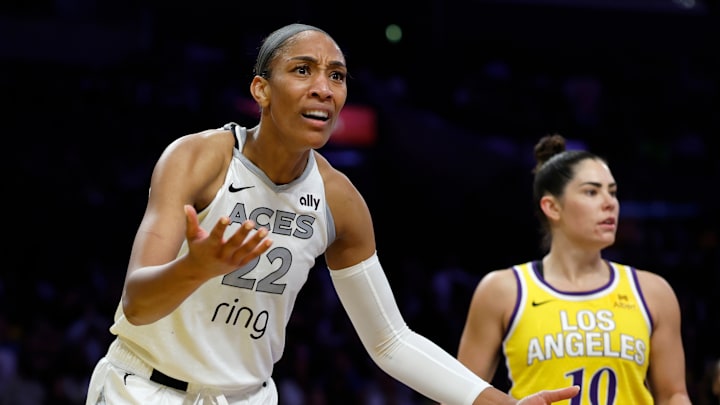This might be news to some people out there, but playing in the WNBA is an actual job, with real responsibilities, enormous pressure, and an inherent risk of injury that haunts players on and off the court. A lot of the players in the league are under 30, a reality that's important to consider when you factor in the fact that they are often playing on ESPN, their every moment bring broadcast nationally across the country they also live in.
It's been discussed often this season but is always worth acknowledging: there's been a huge surge in interest in the WNBA in the last 2-3 years, a tidal wave ideally driven by a genuine interest in the sport and true fan engagement. That interest brings a lot that's positive to the league: more fans watching hopefully translates to more money for the woefully underpaid players, and, in what one would hope would be a standard world but is beginning to feel like some kind of far-fetched utopia, it would translate into robust debate and conversations about what is truly the most talented women's professional basketball league in the world.
Unfortunately, it appears that interest is also bringing out the eons-old enemy of women everywhere: sexism and all that comes with it.
Earlier this season, we saw green dildos inexplicably tossed onto the floor at multiple games. A satisfactory explanation was never offered; it seemed the idea was a miscalculated attempt for self-promotion from a brand that doesn't feel worth looking up. The apologies issued did little to acknowledge the sexism baked into throwing penis-shaped sex toys at a group of women and people — a diverse group of women and people that spans race, ethnicity, sex, gender identification, and gender attraction — and instead seemed to circle some kind of version of the age-old "We didn't think it was that bad."
According to an article published by Wired on Friday, October 10, the energy behind the green dildos and what followed is alive and well, and there are men in this world betting on the menstrual cycles of women who play in the WNBA and how their cycles might impact the game. They apparently call it "blood money," presumably because it doesn't seem like there's a lot of thought going into any of this, and they seem uninterested in the actual (LITERAL) science and biology of women's menstrual cycles; instead, they're just into throwing a bunch of numbers around, making haphazard, invasive, and inappropriate guesses about the bodies of women they don't know, and in general treating women — professional, intelligent, motivated women — like little pawns on a chessboard who — OMG! — sometimes bleed.
There are a lot of problems with betting on a woman's menstrual cycle. Apart from the inherent and obvious misogyny, there's also the fact that there isn't one set menstrual cycle out there, boys. That's something these betters might know if they spent any time of note with women; but these might be the kind of guys who are too scared to even touch a box of tampons at the grocery store, let alone understand the body chemistry of the actual women in their own lives.
The idea that anyone who has never met a woman could predict when she will get her period is already pretty dumb, but the idea that you can then take a half-baked, poorly-informed guess and try to make money with it is absolutely ludicrous. We're past the point where it seems likely someone willing to bet on a stranger's menstrual cycle is open to any kind of intelligent or thoughtful debate or conversation, but perhaps there's this: go touch grass, fellas. Maybe you'll actually meet a woman that way.
